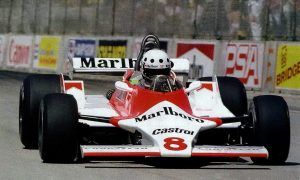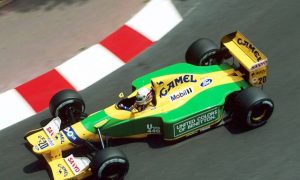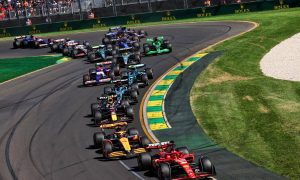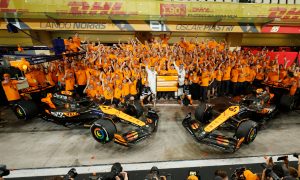Spending a week at Le Mans for my first World Endurance Championship (WEC) event, it has been easy to slip in to a similar style of working as I do in the F1 paddock, wanting to know whatever each driver will tell me about the race and where it will be won and lost.
Much harder to do was avoid the obvious clamour from many to try and compare the two championships and get drivers with experience of both series - of which there are many who raced this weekend - to explain in which areas one is better than the other.
I’m not going to compare the two, because as race-winner Nico Hulkenberg so aptly put it: “It’s two different pairs of shoes … Both are at the pinnacle of motor racing.”
However, Hulkenberg also highlights that F1 and WEC are two categories in the overall sport of motor racing, and therefore there are crossovers and similarities, as well as lessons to be learned.
Sitting down with a driver who has experienced F1 and WEC, but also viewed motor sport from a different perspective as a commentator and analyst for Sky Sports, Anthony Davidson immediately highlights to F1i where he believes every category needs to be focused.
“It’s got to be more emphasis on the driver, and less on the car,” Davidson says. “I know it’s a technological sport, and that’s great because people are interested in the speed, the horsepower figures and how that relates to the road car they drive or love, but at the end of the day it’s a human sport.
“It’s why the Olympics are so successful; it’s all about the human aspect and that should never be forgotten. Going from the situation we were in last year to this year it really brings home to me how cruel it is for the driver when you have the best car, going to the slowest car and there’s nothing you can do, nothing in your control as a driver.
It should be 20% who can build the best car and the rest of it should be about who is the best driver
“That really hurts and I think it’s wrong as well. A driver should at least have a chance to show their skill and people want to see that as well. It should be 20% who can build the best car and the rest of it should be about who is the best driver.”
It seems a simplistic view, but Davidson has thought how such a change could be implemented. In his view, one of F1’s weaknesses is where it allows car designers freedom. Technical directors will work on aerodynamics to make the quickest car possible, but also to ensure it leaves a dirty wake which reduces the performance of any following car.
Essentially, this approach is a defence mechanism which keeps another car at an arm’s length unless it has a major pace advantage. That makes it extremely difficult for two cars and two drivers of similar pace and talent to really fight.
“I think maybe a lot more spec parts on the car should be introduced,” Davidson suggests. “Say in LMP1 for instance we have a spec diffuser and I think that works really well. You hear nobody complain about it in the teams and who is to say a spec front wing wouldn't be the way to go in Formula One? And to reduce the effects of wings in general and focus more on mechanical grip and bring back a bit of slipstreaming.
“Like go-karting, Formula Ford, Indy 500 racing or LMP1. Even cycling, MotoGP - any sport that has a bit of towing and slipstreaming effect where the leader can never quite pull away, that’s what makes racing really exciting. Aerodynamics is something you can’t see and that’s a problem. That’s why there’s always a mystique about ‘how the hell does a jumbo take off?!’
“You can’t see air pressure and that’s frustrating for the fans. It’s even more frustrating for the driver when you’re following another car and all your grip is taken away. There’s this imaginary buffer that stands between you and the car in front, that should be eradicated because it’s wrong. Then you’ll get better racing.”
Hulkenberg’s triumph was great for the sport, but also highlights how talented drivers can be made to look average by not having a competitive enough car with which to showcase their talents. For Davidson, Sebastien Buemi and Kazuki Nakajima, the defending WEC drivers’ champions finished the race nine laps down, and they didn’t become bad drivers overnight.
The interested surrounding this year’s race came from the presence of a driver who could be able to show what he can do in a different category. It was the human element that drew the attention, and - like it or loathe it - it’s Hulkenberg’s success which will gain more headlines worldwide than the team or his team-mates in the #19 car.
The driver’s influence is an age-old issue with motor racing, but one which needs to be considered at all levels to ensure the sport remains attractive to as many people as possible.










